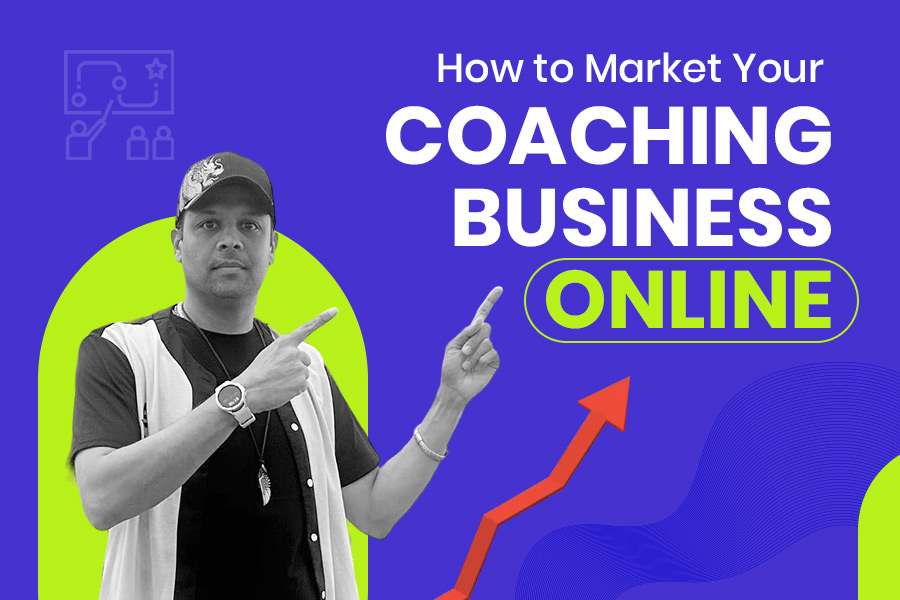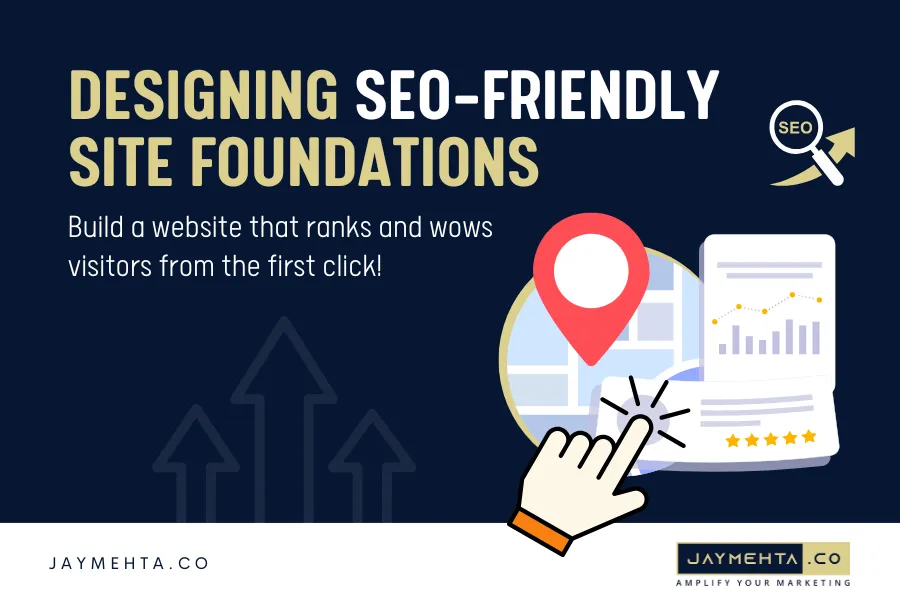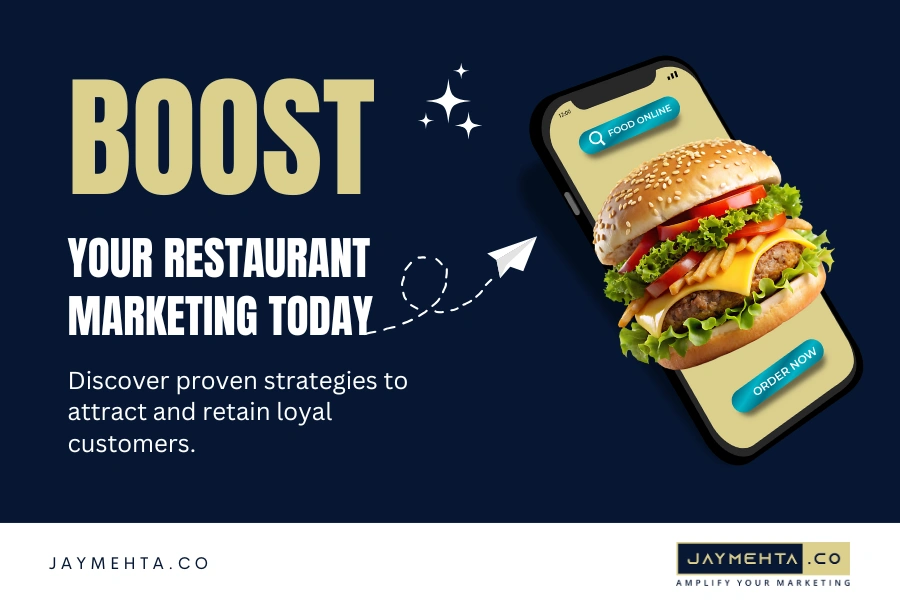Introduction
Coaching businesses have seen a significant rise worldwide, with more and more entrepreneurs entering the market. Whether you're a life coach seeking clients, a fitness coach specializing in weight loss, or an expert in land development deals, the key to success lies in standing out from the competition and mastering the art of marketing for your coaching business.
In all honesty, the fate of an online coaching business depends on its marketing efforts. If your tactics, such as paid advertising, guest blogging, and content marketing, prove successful, congratulations! You will be able to attract clients and establish a profitable venture. A failed marketing strategy can spell doom for your coaching business.
Given the abundance of social media platforms and digital channels available, it can be overwhelming to determine the best approach for reaching potential clients. That is why we are here to help.
This article will discuss the most effective marketing strategies every coach should implement to foster business growth. But before we shed light on those strategies, let's take a moment to understand why marketing is an essential aspect of your coaching business.
Why Online Coaching?
Our contemporary society has abundant opportunities to provide diverse learning experiences. On thoroughly examining the advantages, similarities, and differences between online and offline coaching, it is recommended to opt for online coaching because of its flexibility and reach.
The primary reason behind this preference is the ability to provide a comprehensive learning experience through online platforms, effective student management, time allocation, and the option to host offline classes when required. It is essential to acknowledge and respect clients' varying and specific requirements.
It is vital to recognize that some clients prefer online coaching, while others prefer in-person options. Therefore, it is crucial to identify the intended audience and communicate with clients in both individual and group settings. This enables you to evaluate and determine the optimal learning approach for each client and arrange your lessons accordingly.
It is crucial to effectively communicate this information to potential clients, especially when offering online coaching sessions. Furthermore, if you aim to provide a holistic approach that combines both online and offline methods, it is worth considering including offline sessions in your coaching package.
Why Is Marketing Important?
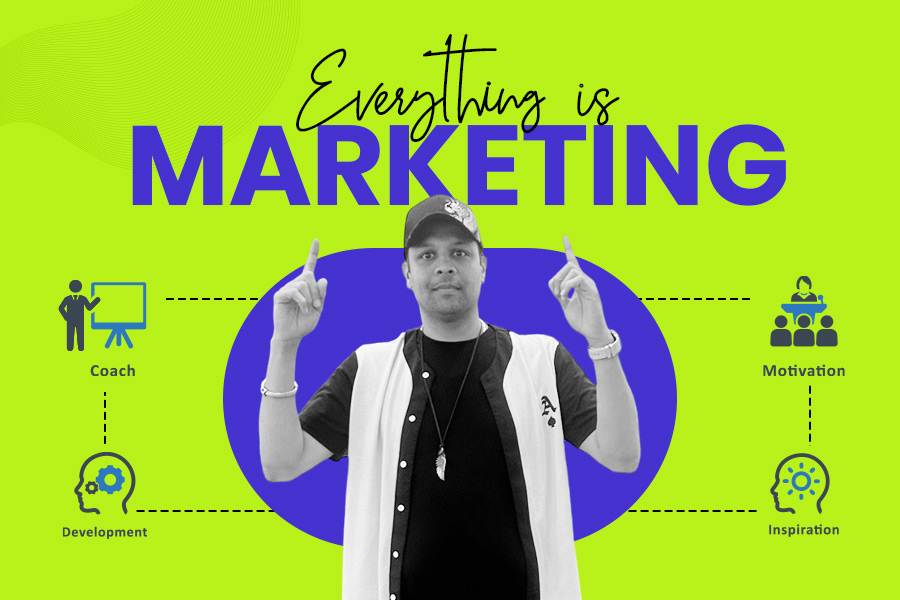
Let's start with the basics: without marketing, your coaching business won't find any clients. It is the lifeblood that keeps your business thriving. An effective marketing strategy is vital for coaches, from content marketing to leveraging social media platforms and participating in networking groups. Failure to develop a robust marketing plan will put your business at risk of survival.
I want to share some statistics that emphasize the importance of marketing for coaching businesses:
- Digital marketing and paid advertising tactics have proven highly effective in generating more business, with digital ads increasing brand awareness by 80%.
- Businesses that maintain a blog experience 55% more website traffic, underscoring the value of content marketing.
- Social media platforms offer immense marketing potential, as evidenced by the fact that 90% of Instagram users follow at least one brand.
Email marketing emerges as the most common strategy for lead generation, followed by event and content marketing.
Brand marketing is not solely focused on acquiring new leads but also plays a pivotal role in client retention. Email campaigns are a popular method of customer retention. Furthermore, loyal customers spend 67% more than new customers making retention a crucial area to focus on for your coaching business.
These statistics demonstrate how effective marketing can give you a competitive edge in the coaching industry.
But the question is, what are the effective strategies to promote your coaching business to reach a wider audience?
Here are effective ways to market yourself and attract new clients as a coach:
Best Marketing Strategies to Try for Your Coaching Business
- Finding Your Ideal Client
- Master Your Personal Branding: Differentiate Yourself
- Craft a Stunning Website: The Gateway to Your Coaching Success
- Boost Your Online Presence: Create Engaging and Original Content
- Social Media Powerhouse: Harnessing the Potential for Coaching Success
- Dominate with Google AdWords: Expand Your Coaching Reach
- Microsoft Ads - Reach Beyond Boundaries: Bing Ads for Coaching Success
- Build & Nurture Email Leads: Strategies for Engaging Success
- Amplifying Your Reach with Targeted PPC Campaigns
- Establishing Yourself as the Trusted Coaching Expert: Earn Recognition & Credibility
Finding Your Ideal Client
Now that you're aware of the significant impact that digital marketing plays in the success of your coaching business online, it becomes imperative to delve into identifying your ideal client. After all, developing a marketing strategy that truly resonates with your target audience requires a deep understanding of their needs and preferences.
Identifying your niche is crucial to kickstart your meander. For instance, if you are a health coach, your ideal clients would be individuals who want to improve their health, nutrition, or fitness levels.
To better define your intended audience, tailor your services and identify the specific group you wish to cater to. For instance, young athletes who require guidance on mental preparedness will have varying interests from older individuals who engage in weekend sports and seek dietary advice.
Once you have established all the necessary details, it's time to create an avatar or persona that represents your ideal client. This reference point will help your marketing efforts for your coaching business.
Master Your Personal Branding: Differentiate Yourself
“Personal Branding” is not limited to corporations; it plays a vital role in leaving a lasting impression on people and helping them build fruitful relationships. Consider your personal brand your unique identity—an effective means of communicating who you are and what sets you apart from your competitors.
When starting your personal branding journey, take some time to reflect on your own story and truly understand who you are. Consider how you see yourself and how you want your audience to perceive you as well.
Establishing a personal brand is a precious means of displaying your authentic identity. You must remain authentic to yourself throughout the entire process. There is no need to pretend to be someone else, as your intended audience will naturally connect with the genuine version of yourself.
Consistency is key in personal branding. Your brand must be clearly and consistently reflected in all online and offline communications. Branding impacts several aspects, such as your written content, visual materials, and other areas.
Consider these elements as valuable opportunities to incorporate and reinforce your personal branding. Using these platforms effectively, you can showcase your unique identity and leave a lasting impression using these platforms effectively.
Related Blog: How to Create a Brand Strategy Plan
Craft a Stunning Website: The Gateway to Your Coaching Success
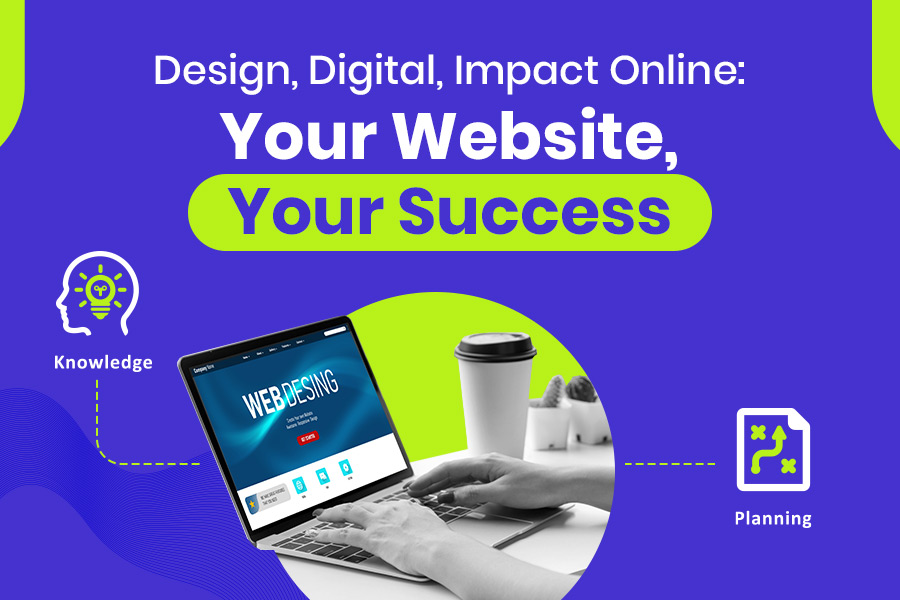
In this age of digital dominance, having a website where people can learn about your coaching services is an absolute must. Your website is a central hub where potential customers can learn about who you are and what you offer. Your website is a powerful communication tool, showcasing your brand and presenting you as a professional.
To ensure your website covers all the necessary aspects, I highly recommend including the following pages:
Home
Create a welcoming and engaging homepage that provides a snapshot of your coaching services and entices visitors to explore further.
About Me
Use this page to introduce yourself, your background, and your expertise. Personalize it to establish a connection with your audience.
Services/Work With Me
Clearly outline the coaching services you provide, including details of the various programs, packages, or sessions available.
Blog
Maintain an informative and regularly updated blog section. This will demonstrate your knowledge and expertise and attract visitors through valuable content.
Contact
Make it easy for potential clients to contact you by providing clear contact information and a contact form.
Testimonials
Showcase positive feedback and success stories from satisfied clients. Testimonials build trust and credibility, assuring potential clients of the quality of your services.
We are currently in a high-tech online revolution, where the internet has become the go-to source for information. Hence, creating a professional website for your coaching business is wise and necessary. This will allow you to reach a broader audience and extend your services beyond your local community.
Potential clients can easily find you online and learn more about your coaching services. Moreover, a website is an effective tool for promoting and marketing your coaching services.
Your website should provide detailed information about your service offerings, address frequently asked questions, and prominently display your contact details. Consider sharing success stories from past clients to showcase the value you bring. Optimize your website content for search engines to improve visibility and attract organic traffic.
Moreover, your website can be valuable for collecting visitor emails and building your newsletter subscriber list. This lets you stay connected with potential customers and effectively use email marketing strategies.
Overall, having a website indicates your professionalism and dedication toward your coaching venture, highlighting your provision of top-notch services.
Boost Your Online Presence: Create Engaging and Original Content
Optimizing your website for search engines is vital to promote your coaching business online and reaching a wider audience than you intended. It's crucial that your website is easily visible in Google search results when people search for information related to your niche.
This way, the more your website comes up in these queries, the more your organic traffic increases as you reach people actively looking for coaching services.
How can you accomplish this? It's quite straightforward: consistently produce and publish high-quality content that caters to the needs and interests of your target audience.
Moreover, it's crucial to identify and utilize relevant keywords related to your coaching niche. Tools such as SEMrush and Ubersuggest can greatly aid in this process, helping you discover the most potent keywords to integrate into your content.
Apart from creating content, don't overlook the importance of optimizing your website for mobile devices. Ensuring your website loads quickly and easily navigates on mobile devices is crucial. Also, having high-quality backlinks from trustworthy websites in your niche can significantly improve your website's authority and search engine rankings.
Of course, these will take time to produce visible results, but they are worth investing in for the long term. The beauty of this approach lies in the fact that, when executed correctly, you can attract organic traffic at no extra cost.
Additionally, consistently appearing on the first page of search results can help establish your authority within your niche, further enhancing your credibility and reputation as a trusted expert.
Social Media Powerhouse: Harnessing the Potential for Coaching Success

In our current age, where everything is moving at lightning speed, it's essential to use online marketing to reach out and engage with potential customers.
However, it's crucial to remember that the social media platforms most suitable for your coaching business may vary depending on the characteristics of your target audience. Therefore, it's imperative to clearly understand your audience before moving forward.
How about we delve into the most crucial social platforms and the tactics you should apply to get the most out of them?
LinkedIn
LinkedIn is a good place to continue building your personal brand. Publish thought leadership content that shows the value you can provide. Depending on your niche, you might find clients directly from LinkedIn, too–especially those willing and able to pay a bigger budget.
LinkedIn is also a good place to connect with other coaches and brands where you can network your way into collaboration opportunities.
Related Blog: How to Use LinkedIn to Grow Your Business
YouTube
Posting regular YouTube videos is a highly effective way to bolster your online presence. By sharing video content, you can add a personal touch to your coaching business, which can establish trust with your audience.
Moreover, YouTube offers an excellent platform to showcase your expertise, making it easier for people to identify your skills and find you through search engine results.
As a coach, you can greatly benefit from using YouTube as a marketing tool, but committing to consistency is important. With video being one of the most popular mediums for content consumption, it's crucial to get comfortable in front of the camera as soon as possible.
Facebook
Regardless of the constantly evolving nature of social media, Facebook remains a powerful platform with a large and active user base. In addition to maintaining and consistently posting on a business Facebook page, Facebook groups offer significant benefits for coaches in various fields.
By joining relevant groups within your industry, you can actively participate by answering questions and providing valuable insights that showcase your expertise.
While engaging in direct promotions is generally not recommended, you can use Facebook groups strategically to connect with others and gain insight into your audience. If you want, you can also create a group tailored to coaching clients or generating leads.
Instagram
Instagram is another social platform where you can find a substantial portion of your target audience.
Instagram is an obvious platform, making it the perfect place to establish your personal brand. Moreover, it offers an excellent opportunity to promote your coaching programs and offer free coaching calls through various features such as promotional posts, Reels, Stories, IGTV videos, and more.
Twitter
Utilizing Twitter as a marketing tool can help you connect with your target audience and increase traffic to your website. A useful tactic is cross-promoting your content, including blog posts, to pique interest and engage with your followers.
You can also use Twitter to advertise your lead magnet or offer free consultations, attracting potential clients. Additionally, conversing with individuals who have questions about your brand and sharing relevant hashtags and relatable memes can help foster connections and establish your presence in the coaching community.
By strategically harnessing the power of online marketing, such as social media platforms, you can effectively expand the reach of your coaching business, connect with your target audience and establish yourself as an authority in your field.
Remember, providing valuable content and building a genuine connection with your audience is the key to achieving success in the dynamic world of social media marketing.
Read also: Top Digital Marketing Trends
Dominate with Google AdWords: Expand Your Coaching Reach
One of the biggest entities on the internet is Google, and it offers an incredibly appealing platform for advertising with Google Ads. This potent tool lets you display your business prominently at the top of search pages, reaching a wide audience of possible coaching clients.
Furthermore, utilizing Google Ads can build trust and increase the likelihood of gaining new clients. It's important to note that this service operates on a cost-per-click basis, which can lead to high expenses. The exact costs may differ depending on your location, so it's important to carefully evaluate the investment necessary to acquire valuable coaching clients.
It is important to recognize that Google Ads have unique benefits, such as their capability to provide targeted ads. This enables you to customize your marketing strategies to connect with people who are likely to click on your ads and make a purchase.
Concentrating on this interested audience, you can enhance the effectiveness of your advertising and improve your return on investment.
You May Find Interesting: Learn to Optimizing Search Engine Marketing Campaigns Like a Pro
Microsoft Ads - Reach Beyond Boundaries: Bing Ads for Coaching Success
Being smaller than Google, Bing Ads offers less competition, increased visibility, and increased attention to the target audience. With fewer advertisers competing for ad space, businesses have better click-through and conversion rates, which leads to better results.
Another advantage stems from Microsoft's ownership of Bing, Yahoo, and AOL. By taking advantage of this partnership, ads placed on Bing also appear on all three search engines, expanding the reach and visibility of your advertising campaigns.
One compelling aspect of Bing Ads is its cost-effectiveness compared to Google. Advertising on Bing generally comes cheap, making it an attractive option for businesses with tighter budgets. In addition, Bing provides better ad placement opportunities by ensuring that your ads are placed in prime locations for maximum visibility and engagement.
It's worth considering that Bing's lower traffic volume may lead to fewer clicks and, ultimately, fewer coaching clients. Although having less competition is beneficial, it's important to weigh this against the potential consequences of lower traffic and conversions.
Build & Nurture Email Leads: Strategies for Engaging Success
Email leads are not just random website visitors or social media followers. Those people have acknowledged your coaching business's value and shared their contact information to connect with you.
These leads can be compared to seeds that have the potential to grow and contribute to your success. However, converting these subscribers into paying clients depends on your ability to engage and cultivate these relationships.
If you want to build a successful email list, you can use several effective strategies. One is to create an appealing lead magnet, such as an eBook or short course, to motivate potential customers to sign up for your services.
You can also leverage your social media presence, optimize your website for search engines, run targeted ads, team up with niche businesses, host webinars, and meetups, and provide valuable incentives such as consultations or guides to early subscribers. Using these tactics, you can gather helpful contact information while showcasing your expertise.
It's important to have an attractive and effective landing page to ensure successful lead generation that conveys the value of your coaching services. But building an email list is only the beginning, as you'll need to focus on nurturing those leads as well.
It is important to establish direct communication and build relationships to nurture leads. You can achieve this through personalized messages, informative blog posts, engaging podcasts, and other valuable content. Building relationships with your subscribers increases your chances of converting them into paying customers.
Related Blog: Guide to Using the Power of SEO to Build Your Brand Awareness
Amplifying Your Reach with Targeted PPC Campaigns
While email marketing, networking, and thought leadership are powerful tools for business growth, they often require time to yield results. Targeted PPC advertising can be highly effective for immediate outcomes.
Although it may involve a higher initial cost, PPC allows you to reach individuals who can benefit the most from your services, guiding them further down your sales funnel. Furthermore, PPC campaigns can also serve as a means to distribute content that requires sign-ups, bolstering your future email marketing endeavors.
While it is normal for businesses to experience initial stagnation before seeing results from their PPC budget, there are steps you can take to optimize your campaigns for success.
One critical aspect is honing in on the right audience, considering factors such as personal demographics, location, and browsing habits. Platforms like Google Ads offer a wide range of targeting and reporting tools that can help you refine the scope of your campaigns, ensuring you don't waste resources on clicks that do not convert.
By thoroughly studying and leveraging the available targeting options, you can set yourself up for a cost-effective and efficient first campaign.
Establishing Yourself as the Trusted Coaching Expert: Earn Recognition & Credibility
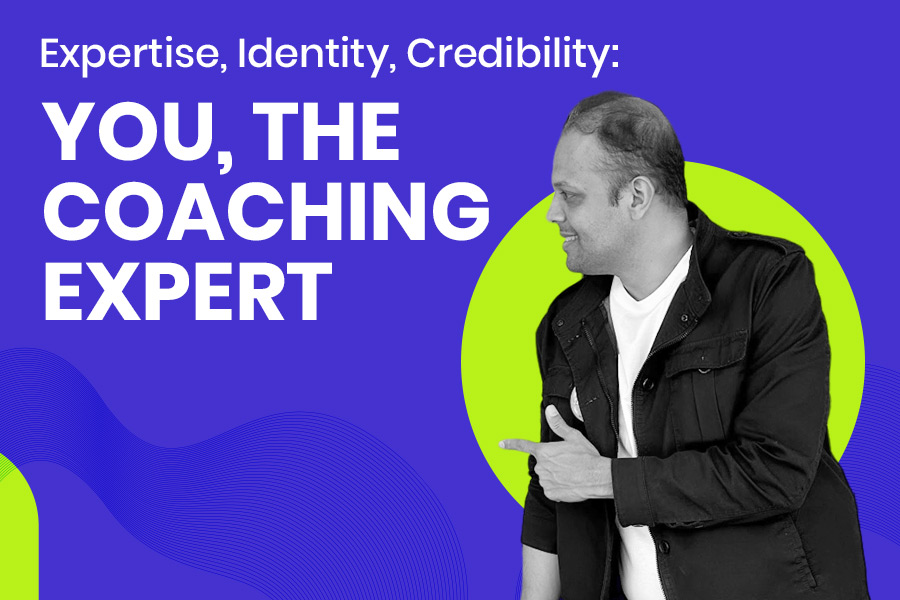
Having identified the specific problem or pain point your clients face, your goal is to position yourself as the go-to expert. Creating informative resources and establishing a strong online presence can build trust and credibility within your target audience.
Consider writing a blog that offers useful tips and how-to guides, creating a podcast centered around your area of expertise, and engaging with relevant Facebook groups and forums. Additionally, networking with individuals who offer complementary services to the same target group can expand your reach and establish valuable connections.
Building a sustainable online presence involves creating a blog with helpful articles addressing your prospects' problems. This way, they will come across your valuable resources whenever they research online. Although this approach demands time and effort, the long-term benefits are undoubtedly worth it.
Get Benefited: Powerful Resources and Tools for Writing Quality Content
By employing these informative strategies, you can build and nurture email leads effectively, expand your reach through targeted PPC advertising, and establish yourself as the trusted coaching expert in your field. Remember, cultivating fruitful relationships with your leads and providing valuable content are keys to long-term success.
Read also: Top Ideas for Marketing Your Coaching Business Online
Final Verdict
Starting an online coaching business can be a challenging endeavor, especially for those who are new to it. However, anyone can succeed in this field with determination and hard work.
Utilizing the internet can greatly benefit any business. Whether you want to advertise your coaching services or acquire new customers, there are numerous ways to harness the power of the web to thrive and prosper. Hopefully, this article has provided you with useful insights on how to promote online effectively.
Consistency is key in implementing your digital marketing strategy, as it will ultimately pay off. If these techniques seem daunting, don't hesitate to contact us. At jaymehta.co, we specialize in crafting SEO and digital marketing plans that prioritize our client's needs and drive sales.
Have you started your online coaching business? Comment below!
Frequently Asked Questions
But there are other ways to attract clients. Build a good blog on a topic your customers are interested in – you can write about social media and marketing, careers, or your industry. You can also make a great YouTube video or podcast.

